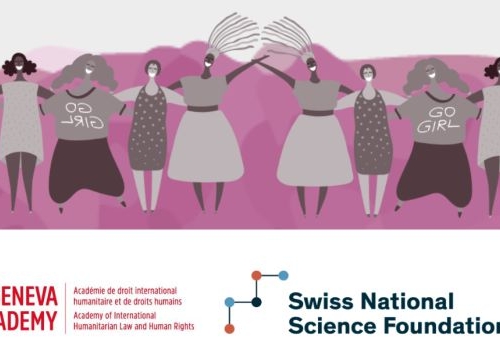Equal and Inclusive Representation of Women in Decision-Making Systems: CEDAW’s Next General Recommendation
Event
The United Nations (UN) Committee on the Elimination of All Forms of Discrimination Against Women (CEDAW) has recently announced that it will start working on the development and adoption of a new General Recommendation on the ‘Equal and inclusive representation of women in decision-making systems’.
Following the half-day general discussion that the Committee organizes on 22 February 2023, this event – co-organized with GQUAL, the University of Bern, the Swiss National Science Foundation and the World Trade Institute – intends to highlight the importance of the process initiated by the Committee with a broad audience of stakeholders and contribute to the discussion by engaging experts on a dynamic conversation addressing key issues related to the equal and inclusive representation of women in decision-making systems.
Welcome
- Gloria Gaggioli, Director, Geneva Academy and Professor, University of Geneva Law Faculty
Opening Remarks
- Nada Youssef A. Al Nashif, Deputy High Commissioner for Human Rights
Moderator
- Elisa Fornalé, World Trade Institute and University of Bern
Panelists
- Nicole Ameline, Vice-Chair, CEDAW
- Claudia Martin, Founding Member of GQUAL, Professorial Lecturer in Residence and Co-Director, Academy on Human Rights and Humanitarian Law, American University Washington College of Law
- Claudia Fuentes Julio, Ambassador and Permanent Representative of Chile to the UN in Geneva
- Santiago Canton, incoming Secretary General, International Commission of Jurists
- Caitlin Kraft-Buchman, CEO/Founder, Women at the Table







